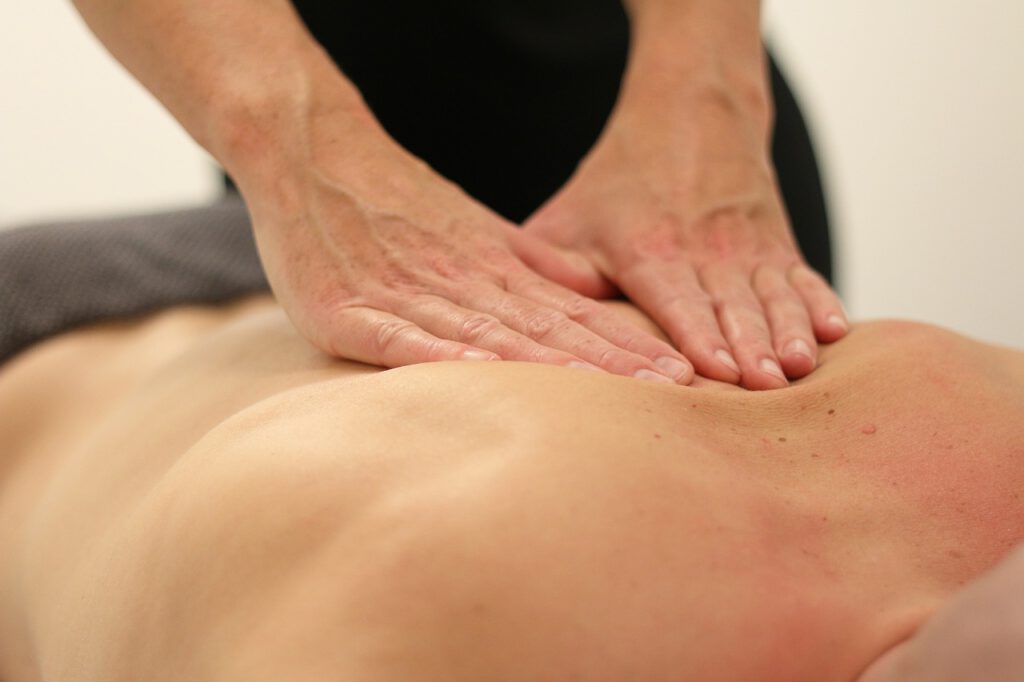Test anxiety is common among people taking the Inburgering exam. Whether it’s fear of speaking Dutch or worrying about the written tests, anxiety can hinder performance. This blog post will offer practical strategies for overcoming test anxiety, including relaxation techniques, time management tips, and how to approach the exam with a positive mindset. We’ll also share advice on how to stay calm and focused during each section of the test.
Understanding test anxiety
Test anxiety typically arises from the fear of failure or a perceived inability to perform well in a testing situation. It can manifest in different ways:
- Physical Symptoms: Sweating, racing heart, dry mouth, dizziness, headaches, nausea.
- Emotional Symptoms: Feelings of panic, fear, or dread before or during a test.
- Cognitive Symptoms: Difficulty concentrating, blanking out, negative self-talk, thoughts of failure or inadequacy.
- Behavioral Symptoms: Procrastination, avoiding studying or avoiding tests altogether, trouble starting or finishing test questions.
Common Causes of Test Anxiety
- Fear of Failure: Worrying about disappointing oneself or others, or not meeting expectations.
- Perfectionism: Setting unrealistically high standards that lead to stress.
- Previous Negative Experiences: Having faced failure or poor performance in the past.
- Lack of Preparation: Feeling unprepared for a test can increase anxiety.
- Over-identifying with Grades: Linking self-worth too closely with academic performance.
How to Deal with Test Anxiety
1. Prepare Effectively
- Plan Ahead: Start studying well in advance. Break material into smaller, manageable chunks to avoid last-minute cramming.
- Create a Study Schedule: Establish a routine that includes breaks and time for relaxation. Consistent study habits reduce feelings of being overwhelmed.
- Practice with Sample Tests: Familiarize yourself with the test format and types of questions. Practice under timed conditions to reduce the unknown factors during the actual test.
2. Challenge Negative Thoughts
- Identify Cognitive Distortions: Recognize irrational thoughts like “I must get an A, or I’ll fail in life,” and replace them with more balanced thoughts like “It’s okay to make mistakes; I can learn from them.”
- Positive Self-Talk: Use affirmations like, “I am prepared,” “I’ve done my best,” and “I can handle this.” Remind yourself that one test doesn’t define your abilities or your future.
- Visualize Success: Imagine yourself feeling calm, confident, and successfully completing the test.
3. Use Relaxation Techniques
- Deep Breathing: Slow, deep breaths can calm your nervous system and reduce physical anxiety symptoms.
- Progressive Muscle Relaxation: Tense and then release muscle groups in your body to help ease tension and relax.
- Mindfulness: Practice mindfulness techniques to stay in the moment and prevent your thoughts from spiraling into anxiety.
Inburgering Course Amsterdam teaches you ALL the Dutch you Need to ACE Your Inburgering Exam with a MONEY-BACK GUARANTEE! Register here NOW!
4. Focus on the Process, Not Just the Outcome
- Shift your focus from the end result (e.g., grades) to the effort and process of studying and learning. Celebrate the hard work you put into preparing for the test rather than obsessing over the grade itself.
5. Take Care of Your Physical Health
- Sleep: Ensure you get enough rest before the test. Lack of sleep can increase stress and impair cognitive functioning.
- Eat Well: A balanced diet, particularly foods that support brain function, can improve concentration and reduce anxiety.
- Exercise: Regular physical activity helps reduce stress and anxiety. It doesn’t have to be intense; even a short walk can be helpful.
6. Create a Comfortable Test Environment
- Arrive Early: Being rushed or late can increase anxiety, so arrive with plenty of time to spare.
- Prepare Comfort Items: If allowed, bring items that help you feel calm, like a stress ball, a calming scent, or a comforting photo.
- Have a Strategy for the Test: Break the test into sections. Tackle easier questions first to build confidence and save more challenging ones for later.
7. Seek Support
- Talk to Someone: Sharing your concerns with a teacher, counselor, or a friend can help you feel more supported and less isolated.
- Professional Help: If test anxiety is severely affecting your ability to perform, consider speaking with a therapist. Cognitive-behavioral therapy (CBT) is particularly effective for managing anxiety.
8. Learn from Experience
- After each test, reflect on how it went, what strategies worked, and what could be improved next time. Remember, one test does not define your abilities or future.
By incorporating these strategies into your routine, you can significantly reduce test anxiety and improve both your well-being and performance.
Relaxation and stress management techniques
Here are three professional relaxation and stress management techniques that are commonly used to help reduce anxiety, stress, and promote relaxation:
1. Progressive Muscle Relaxation (PMR)
Progressive Muscle Relaxation is a technique where you systematically tense and then relax different muscle groups in your body. This helps release physical tension, promote relaxation, and increase body awareness.
How to Practice PMR:
- Find a quiet, comfortable space and sit or lie down.
- Start with your feet and work your way up to your head.
- Tense each muscle group (e.g., feet, calves, thighs, abdomen, arms, etc.) for about 5-10 seconds, then release and relax for 20-30 seconds.
- Focus on the contrast between tension and relaxation.
- Continue through the body, ending at your head and neck.
Benefits: PMR helps reduce muscle tension, lower heart rate, and promote a feeling of relaxation. It can be particularly useful in managing both physical and mental stress.
2. Mindfulness Meditation
Mindfulness meditation involves paying attention to the present moment without judgment. By practicing mindfulness, you can reduce the impact of stress and anxiety by focusing on your breath or surroundings, helping you detach from anxious thoughts.

How to Practice Mindfulness Meditation:
- Sit comfortably in a quiet space with your back straight.
- Close your eyes and bring your attention to your breath. Focus on the sensation of the air entering and leaving your nostrils or the rise and fall of your chest or abdomen.
- If your mind begins to wander, gently bring your attention back to your breath.
- Start with 5-10 minutes and gradually increase the time as you become more comfortable with the practice.
Benefits: Mindfulness can help reduce stress, anxiety, and improve emotional regulation. It allows you to remain calm in the face of challenging situations by fostering awareness and acceptance.
3. Cognitive Behavioral Therapy (CBT) Techniques: Cognitive Restructuring
Cognitive restructuring is a core technique in CBT that involves identifying and changing negative thought patterns that contribute to stress and anxiety. By reframing these thoughts, you can reduce their emotional impact.
How to Practice Cognitive Restructuring:
- Identify Negative Thoughts: Notice when you’re having thoughts that are overly negative, irrational, or exaggerated (e.g., “I’ll fail the test, and my life will be ruined”).
- Challenge the Thoughts: Ask yourself whether these thoughts are based on facts, or if they’re distorted by anxiety. For example, “What evidence do I have to support this thought?”
- Reframe the Thoughts: Replace the negative thought with a more balanced, realistic perspective. For example, “I’ve studied and prepared. Even if I don’t do perfectly, I can handle it and learn from the experience.”
Benefits: This technique helps to reframe anxiety-inducing thoughts and reduce their impact, making it easier to manage stress and maintain a positive mindset in challenging situations.
These techniques, when practiced regularly, can greatly reduce stress, improve emotional well-being, and enhance overall resilience.
How to manage time during the exam
Managing time effectively during an exam is essential for ensuring you complete all sections and perform at your best. Here are three tips to help you manage your time during an exam:
1. Plan Your Time at the Start
Before you dive into answering questions, take a few moments to assess the entire exam. Check how many questions there are and how much time you have. Allocate time to each section based on its complexity and point value.
Tip:
- Quick Breakdown: If you have 60 minutes and 50 questions, for example, aim to spend about 1 minute per question on average. For essay or long-answer questions, plan to spend more time on those and less on multiple-choice questions.
- Time Checkpoints: Set small time goals for yourself (e.g., “I’ll finish this section in 20 minutes”). Use a watch or the clock to keep track and make adjustments as needed.
Follow Inburgering Course Amsterdam on Instagram and TikTok to learn Dutch for free, win amazing prizes and enjoy the BEST Dutch memes!
2. Tackle Easier Questions First
Start with the questions you find easiest or most straightforward. This approach boosts confidence and helps you accumulate points quickly, which can reduce anxiety as you work through more difficult parts of the exam.
Tip:
- Don’t Get Stuck: If you come across a tough question, don’t waste too much time on it. Move on and return to it later if time allows. Prioritize questions that you can confidently answer first.
- Mark Harder Questions: If allowed, mark questions you want to come back to later, so you don’t forget them.
3. Monitor and Adjust Your Time as You Go
As you work through the exam, be mindful of how much time you’ve spent and how much you have left. Adjust your pace if you’re spending too much time on a particular question or section.
Tip:
- Mid-Exam Time Check: Halfway through the exam, do a quick check to see if you’re on track. If you’re ahead, you might spend a little more time on the harder questions. If you’re behind, pick up the pace or skip difficult questions for now.
- Leave Time for Review: Make sure you save a few minutes at the end to review your answers and ensure there are no careless mistakes or unanswered questions.
By planning your time, tackling easier questions first, and adjusting as you go, you can manage your time effectively and maximize your performance during the exam.
Enjoyed reading how to overcome test anxiety for the inburgering exam? Continue learning more about Dutch culture, Amsterdam and the inburgering exam in the ICA Blog here!

Staying confident and focused during your Dutch civic integration exam: 2 tips!
1. Prepare and Practice Regularly
Confidence comes from knowing you’re well-prepared. The Dutch civic integration exam covers topics like language skills, knowledge of Dutch society, and practical situations. Regular practice helps you become familiar with the format, content, and expectations, reducing anxiety.
Tip:
- Simulate Exam Conditions: Practice with mock exams or sample questions under timed conditions to familiarize yourself with the pace and structure of the test.
- Consistent Study: Set aside time each day to review vocabulary, grammar, and cultural knowledge. The more prepared you feel, the more confident you’ll be during the exam.
2. Stay Calm and Focused During the Exam
Test anxiety can easily derail your focus, so it’s essential to stay calm and focus on the task at hand. If you encounter a challenging question, take a deep breath, stay positive, and move forward.
Tip:
- Mindful Breathing: If you feel yourself getting anxious, take a few deep breaths to calm your nerves. This helps reset your mind and improve focus.
- Break Down the Questions: If you’re unsure of an answer, break the question into smaller parts. Focus on one part at a time, and if necessary, come back to the more difficult sections later.
By preparing thoroughly and staying calm and focused during the exam, you can boost your confidence and improve your chances of success!

